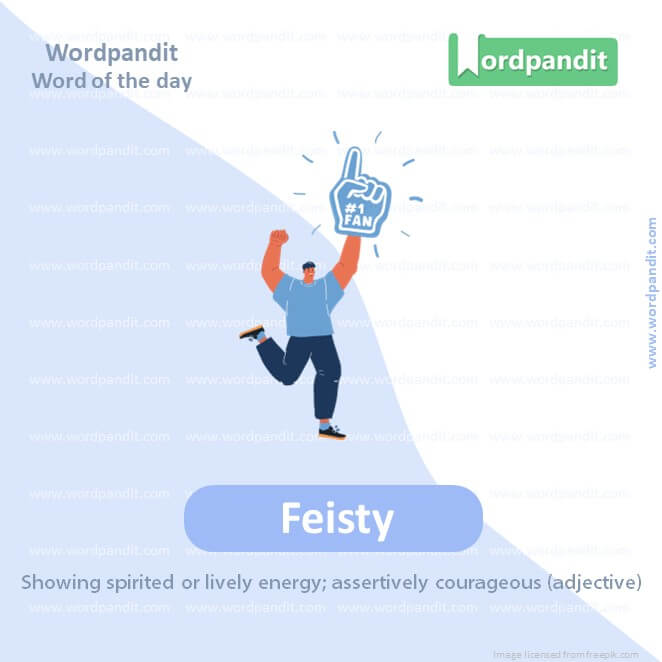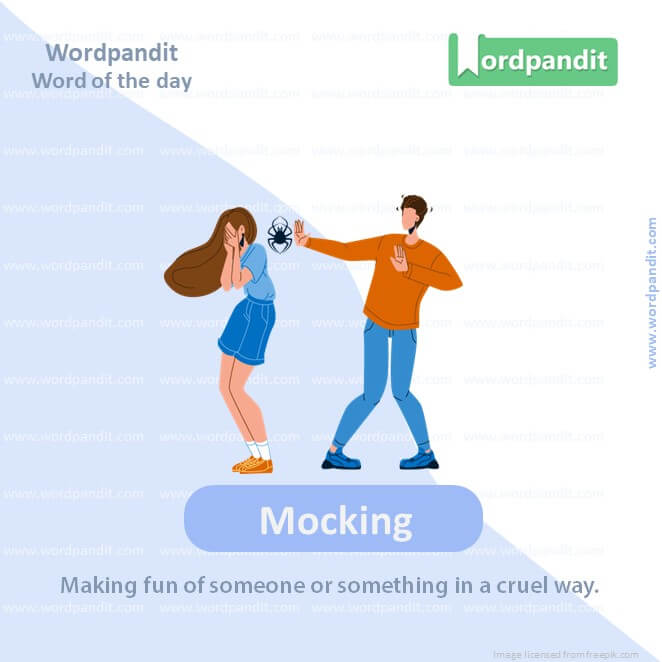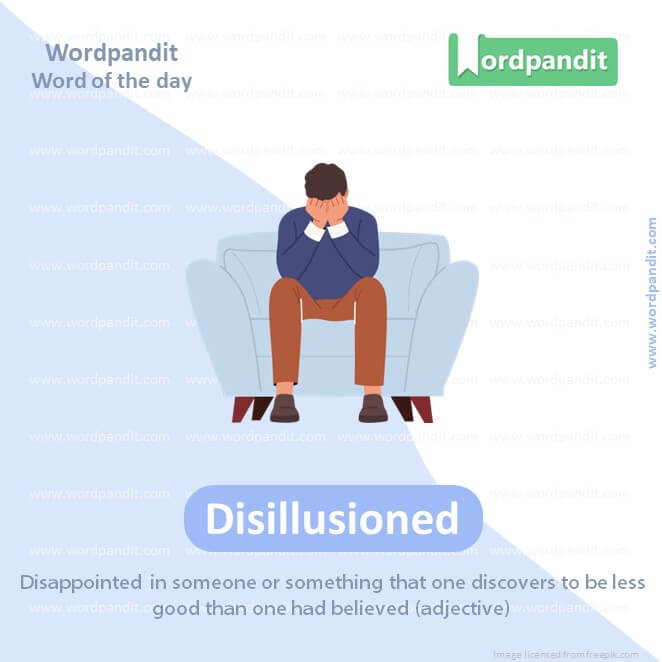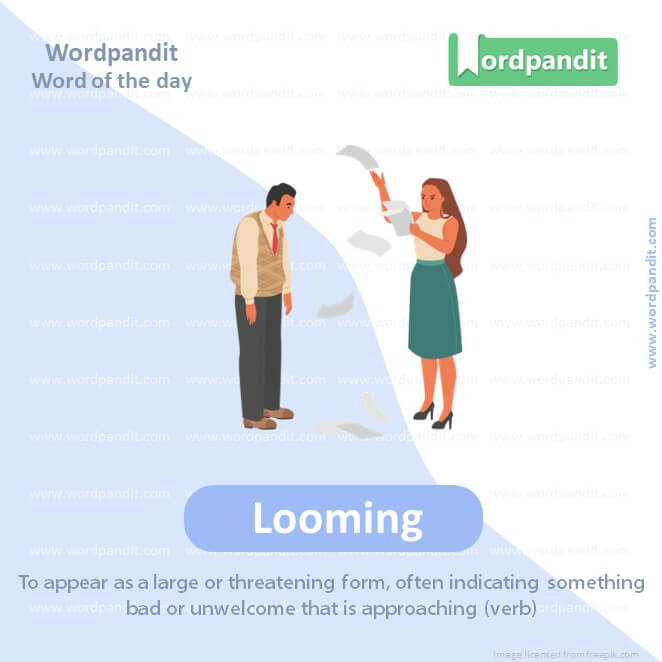Daily Vocabulary Words: List of Daily Used Words in Leading International Newspapers
Hi there. Welcome to this special section @ Wordpandit.
Our endeavour here is very simple: to highlight important daily vocabulary words, which you would come across in leading newspapers in the country. We have included the following newspapers in our selection:
• The New York Times
• The Washington Post
• Scientific American
• BBC
• The Guardian
• Psychology Today
• Wall Street Journal
• The Economist
We are putting in extensive work for developing your vocabulary. All you have got to do is be regular with this section and check out this post on a daily basis. This is your repository of words that are commonly used and essentially, we are posting a list of daily used words. Hence, this has significant practical application as it teaches you words that are used commonly in leading publications mentioned above.
Visit the website daily to learn words from leading international newspapers.
WORD-1: Hehumanize
CONTEXT: an American president who wants to present himself as a figure of compassion casually fall into language designed to demonize and dehumanize.
SOURCE: New York Times
EXPLANATORY PARAGRAPH: Imagine if someone showed you a picture of a robot doing kind things for animals or helping people with their work, making the robot seem friendly and nice, like a person. “Humanize” is when we make something feel more like a human by showing its kind or relatable qualities, making it easier for us to understand and care about.
MEANING: To make something more relatable or appealing by attributing human characteristics to it (verb).
PRONUNCIATION: HYOO-muh-nize
SYNONYMS: Personalize, endear, warm up, soften, make accessible
USAGE EXAMPLES:
1. The documentary humanizes the statistics by telling the stories of individuals affected.
2. By humanizing the brand, the company hoped to connect better with its customers.
3. The teacher humanized the historical figure by sharing personal anecdotes.
4. Art has the power to humanize complex social issues.

WORD-2: Feisty
CONTEXT: Biden was combative, energized and feisty — and partisan.
SOURCE: New York Times
EXPLANATORY PARAGRAPH: Imagine a small dog that’s full of energy and always ready to play or stand up for itself, even against bigger dogs. That dog is “feisty.” It means someone who is spirited, lively, and not afraid to show it, kind of like a superhero in a tiny body.
MEANING: Showing spirited or lively energy; assertively courageous (adjective).
PRONUNCIATION: FIE-stee
SYNONYMS: Spirited, lively, spunky, energetic, gutsy
USAGE EXAMPLES:
1. The feisty player was determined to win despite the odds.
2. Her feisty attitude made her a formidable debate opponent.
3. The kitten was feisty, playfully attacking the older cat’s tail.
4. Despite his size, the feisty character in the story showed great bravery.

WORD-3: Mocking
CONTEXT: Cottle He went all in on the gently mocking humor. He poked fun at himself, including his advanced age, and he teased Republicans repeatedly.
SOURCE: New York Times
EXPLANATORY PARAGRAPH: Imagine if someone copied what you said in a silly voice to make fun of it, like saying “I’m tired” in a way that sounds whiny on purpose. “Mocking” is when you imitate someone or something in a way that’s supposed to be funny but can also be mean because it’s making fun of them.
MEANING: Making fun of someone or something in a cruel way.
PRONUNCIATION: MOCK-ing
SYNONYMS: Ridiculing, taunting, deriding, jeering, scoffing
USAGE EXAMPLES:
1. The bullies were mocking him for his new haircut.
2. She mimicked his accent, mocking him in front of their friends.
3. His performance was met with mocking laughter from the audience.
4. The parody song was a mocking tribute to the original.

WORD-4: Disillusioned
CONTEXT: it was a rant that offered little to the disillusioned, and any boost will be ephemeral.
SOURCE: New York Times
EXPLANATORY PARAGRAPH: Imagine believing that a superhero could never lose and then seeing them get defeated. You might feel sad and disappointed because what you believed wasn’t true. “Disillusioned” is when you feel let down because you learn that something you thought was great isn’t as good as you believed.
MEANING: Disappointed in someone or something that one discovers to be less good than one had believed (adjective).
PRONUNCIATION: dis-i-LOO-zhuhnd
SYNONYMS: Disenchanted, let down, disappointed, disenfranchised, disheartened
USAGE EXAMPLES:
1. After the scandal, many became disillusioned with the politician.
2. The disillusioned fans left the game early, disappointed by their team’s performance.
3. Working in the industry left her disillusioned about the glamour of Hollywood.
4. He was disillusioned by the reality of academic life versus his expectations.

WORD-5: Stumbled
CONTEXT: he stumbled over his words a few times, but watching the president parry surly Republicans, I felt momentarily less terrified about his re-election campaign.
SOURCE: New York Times
EXPLANATORY PARAGRAPH: Imagine running in the park and your foot accidentally hits a rock, causing you to trip and almost fall. “Stumbled” is when you trip or almost fall while walking or running because you hit or step on something by mistake.
MEANING: To trip or momentarily lose one’s balance; to encounter something by accident (verb).
PRONUNCIATION: STUM-buhld
SYNONYMS: Tripped, faltered, bumbled, blundered, tottered
USAGE EXAMPLES:
1. She stumbled over a toy left on the floor.
2. In his haste, he stumbled but quickly regained his balance.
3. While hiking, he stumbled upon a hidden waterfall.
4. The actor stumbled over his lines during the performance.

WORD-6: Looming
CONTEXT: Stack With more than 30,000 dead, a looming famine and unambiguous protests from within his own party, Biden absolutely owed Americans a more direct explanation for his continued support for the onslaught on Gaza.
SOURCE: New York Times
EXPLANATORY PARAGRAPH: Imagine looking up into the sky and seeing dark clouds getting closer and closer, making you worry that a big storm is coming. “Looming” is when something feels like it’s about to happen soon and it might be a bit scary or worrying, kind of like those dark clouds that tell you a storm is near.
MEANING: To appear as a large or threatening form, often indicating something bad or unwelcome that is approaching (verb).
PRONUNCIATION: LOOM-ing
SYNONYMS: Impending, approaching, imminent, brewing, threatening
USAGE EXAMPLES:
1. The deadline was looming, and he still had much work to do.
2. Dark clouds were looming on the horizon, promising rain.
3. The possibility of failure was looming over the project team.
4. With the exams looming, the students began to study harder.
WORD-7: Unambiguous
CONTEXT: Stack With more than 30,000 dead, a looming famine and unambiguous protests from within his own party, Biden absolutely owed Americans a more direct explanation for his continued support for the onslaught on Gaza.
SOURCE: New York Times
EXPLANATORY PARAGRAPH: Imagine someone gives you simple instructions to make a sandwich with clear steps that you understand perfectly. “Unambiguous” means something is very clear and easy to understand, with no confusion or doubt about what it means, just like those easy-to-follow sandwich instructions.
MEANING: Clearly expressed or understood; not open to more than one interpretation (adjective).
PRONUNCIATION: un-am-BIG-yoo-uhs
SYNONYMS: Clear, explicit, straightforward, unequivocal, definite
USAGE EXAMPLES:
1. The teacher gave unambiguous instructions for the assignment.
2. The sign at the park entrance was unambiguous about no littering.
3. Her refusal was polite but unambiguous.
4. The results of the experiment were unambiguous, leading to a clear conclusion.
WORD-8: Lingering
CONTEXT: Stephens A forceful, nimble speech that will dispel any lingering doubts about Biden’s nomination.
SOURCE: New York Times
EXPLANATORY PARAGRAPH: Imagine after a birthday party, the smell of the cake and the balloons are still there even though the party is over. “Lingering” is when something stays around for a long time, not going away quickly, like the smell and decorations of the party that make you remember it.
MEANING: Staying in a place longer than necessary, typically because of a reluctance to leave (verb).
PRONUNCIATION: LING-guhr-ing
SYNONYMS: Persisting, remaining, staying, loitering, dawdling
USAGE EXAMPLES:
1. The scent of her perfume was lingering in the room long after she left.
2. He had a lingering doubt about the decision he’d made.
3. The guests lingered after the party, not wanting the night to end.
4. Memories of the event were lingering in his mind for weeks.
WORD-9: Bragged
CONTEXT: that he raised his fist in the air and that Biden bragged about having been the first president to stand on a picket line.
SOURCE: New York Times
EXPLANATORY PARAGRAPH: Imagine someone talking a lot about how they won a race, telling everyone how fast and amazing they are. “Bragged” is when you talk about yourself or something you did in a way that shows you are very proud, sometimes too much, making sure everyone knows how great you think you are.
MEANING: To talk about oneself, one’s achievements, or possessions in a proud or self-admiring way (verb).
PRONUNCIATION: BRAGD
SYNONYMS: Boasted, gloated, showed off, vaunted, crowed
USAGE EXAMPLES:
1. He bragged about his grades to anyone who would listen.
2. She bragged about the new car she had just bought.
3. The athlete bragged about his victory in the championship.
4. They bragged about their vacation to exotic locations.
WORD-10: Adolescent
CONTEXT: There are three great novels that I read as an early adolescent that I would take to a desert island if I ever needed to be set up for decades of rereading.
SOURCE: New York Times
EXPLANATORY PARAGRAPH: Imagine being older than a little kid but not yet an adult, kind of like a teenager. You’re growing up, learning more about who you are, and sometimes feeling like you want more freedom. That’s what being an “adolescent” is. It’s that in-between time where you’re not a child anymore, but not quite an adult either.
MEANING: A young person who is in the process of developing from a child into an adult (noun).
PRONUNCIATION: ad-uh-LES-uhnt
SYNONYMS: Teenager, youth, juvenile, minor, young person
USAGE EXAMPLES:
1. The book is aimed at readers who are adolescents.
2. As an adolescent, he was full of energy and curiosity.
3. The clinic specializes in the health issues of adolescents.
4. The movie perfectly captures the angst of being an adolescent.
Vocabulary Daily Words
Among the myriad aspects of language learning, the role of ‘vocabulary daily words’ attests to their undeniable importance. These everyday words form the bedrock of communication. Whether used in casual chat or formal discussion, the fluency and understanding of ‘vocabulary daily words’ can significantly uplift the quality of interaction. However, the vital question is, how to effectively learn these ‘vocabulary daily words’?
The crux of learning ‘vocabulary daily words’ lies in a well-rounded approach that encompasses exposure, understanding, memorization, and practice. Rote memorization might seem like a quick solution, but it lacks context and, thereby, retention. Hence, opt for a diverse range of resources like books, newspapers, podcasts, and digital media. These will bring ‘vocabulary daily words’ to life, providing real-life usage examples and making the learning process inherently engaging.
Next, using memory-enhancing techniques can significantly improve retention of ‘vocabulary daily words’. Techniques such as flashcards or the Leitner System align with the principles of spaced repetition, allowing more effective and long-term learning. Incorporating mnemonic devices, associating new words with unique stories or images, can further facilitate this learning process.
The key to fully grasping ‘vocabulary daily words’ lies in practical usage. Make it a habit to use these words in your daily communications. Whether it’s a friendly conversation, a professional email, or a social media post, try integrating these new words. Doing so provides hands-on practice, strengthening your comprehension and application of these words.
In a nutshell, ‘vocabulary daily words’ are a treasure in the language learning landscape. By harnessing diversified resources, utilizing memory techniques, and actively using these words, your grip on the ‘vocabulary daily words’ will strengthen significantly. So, turn the pages, hit play, start a conversation, and let these ‘vocabulary daily words’ shape the story of your linguistic journey.











